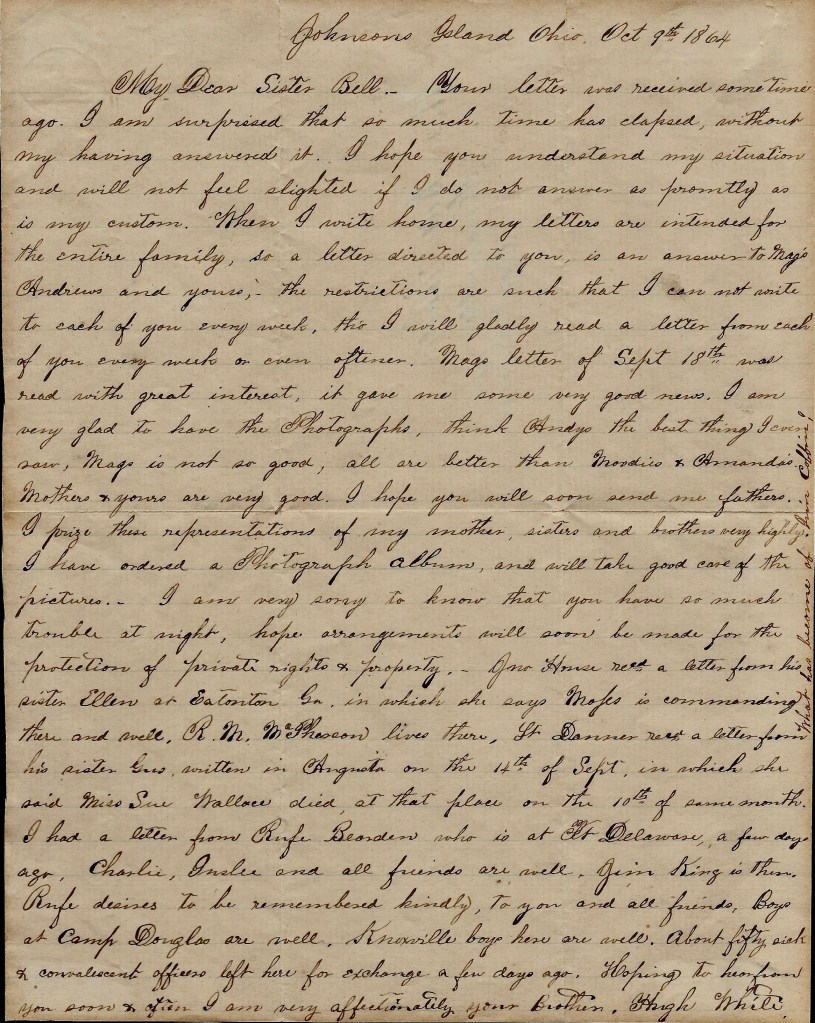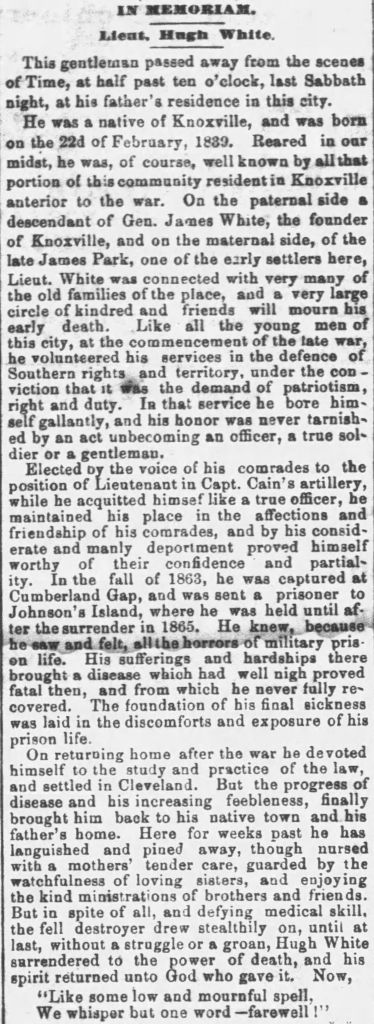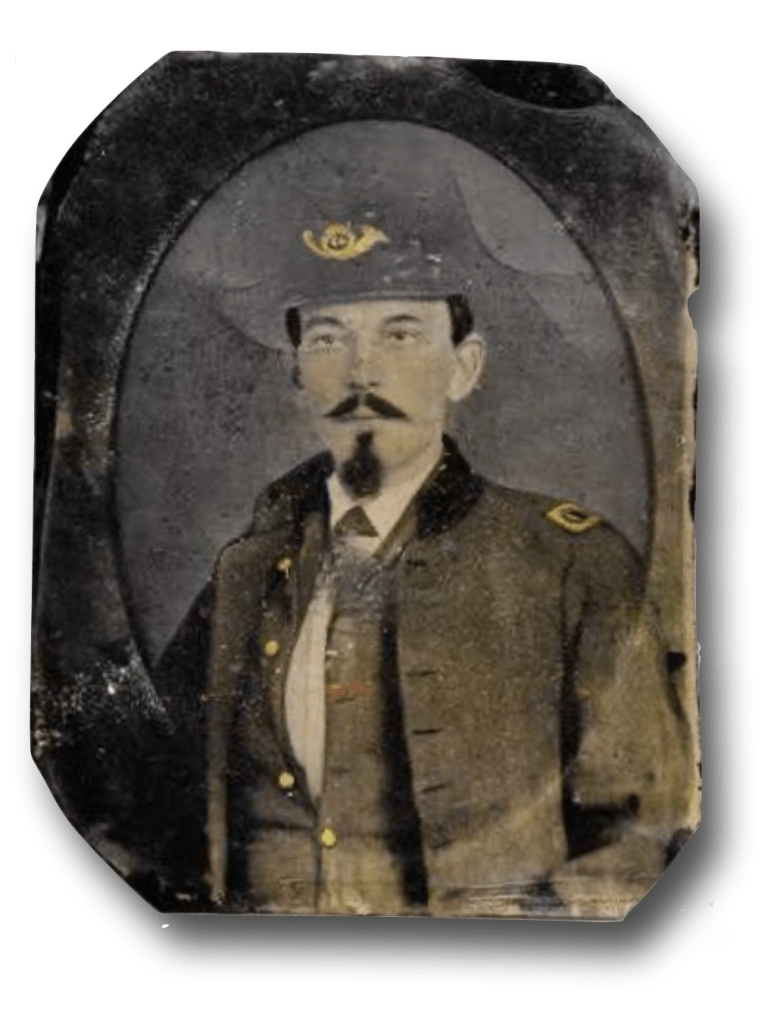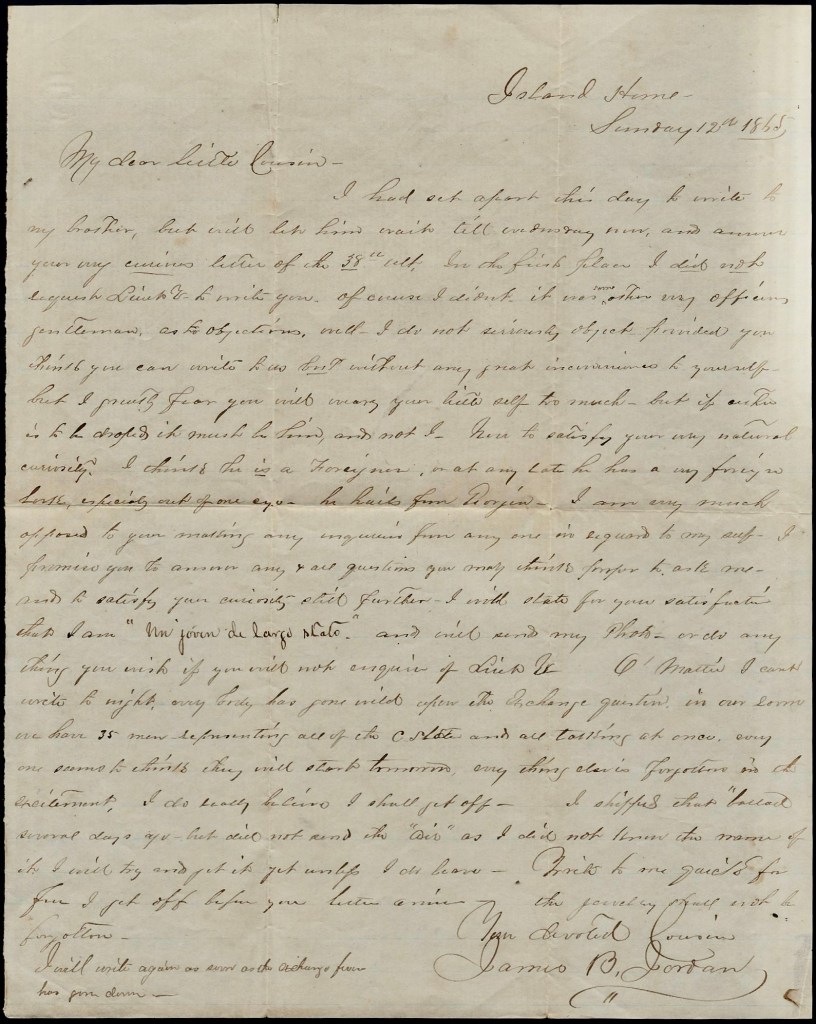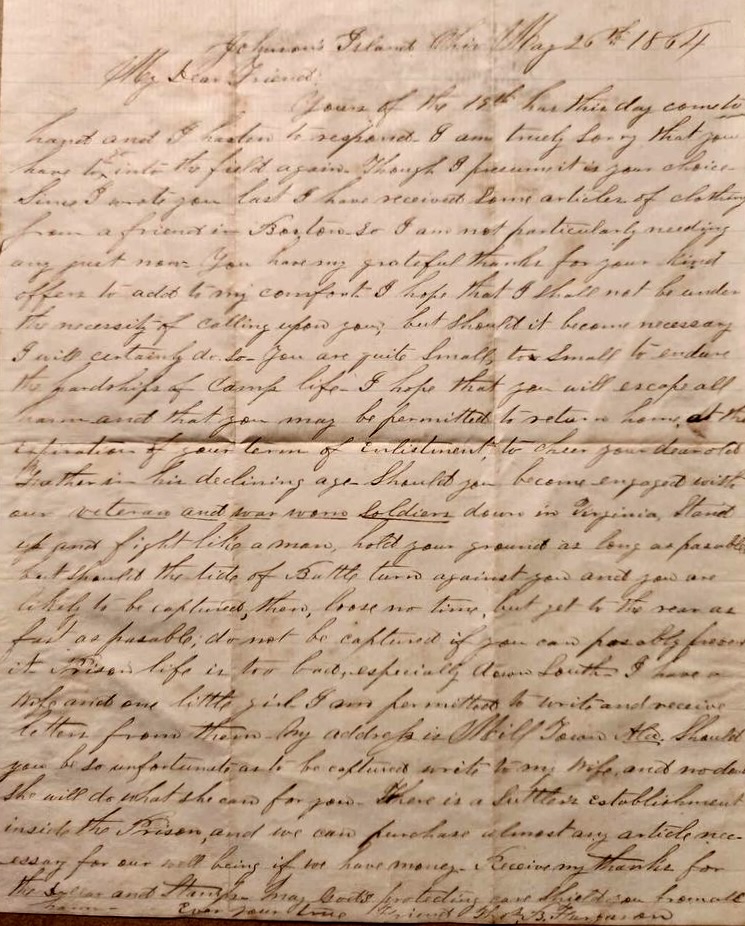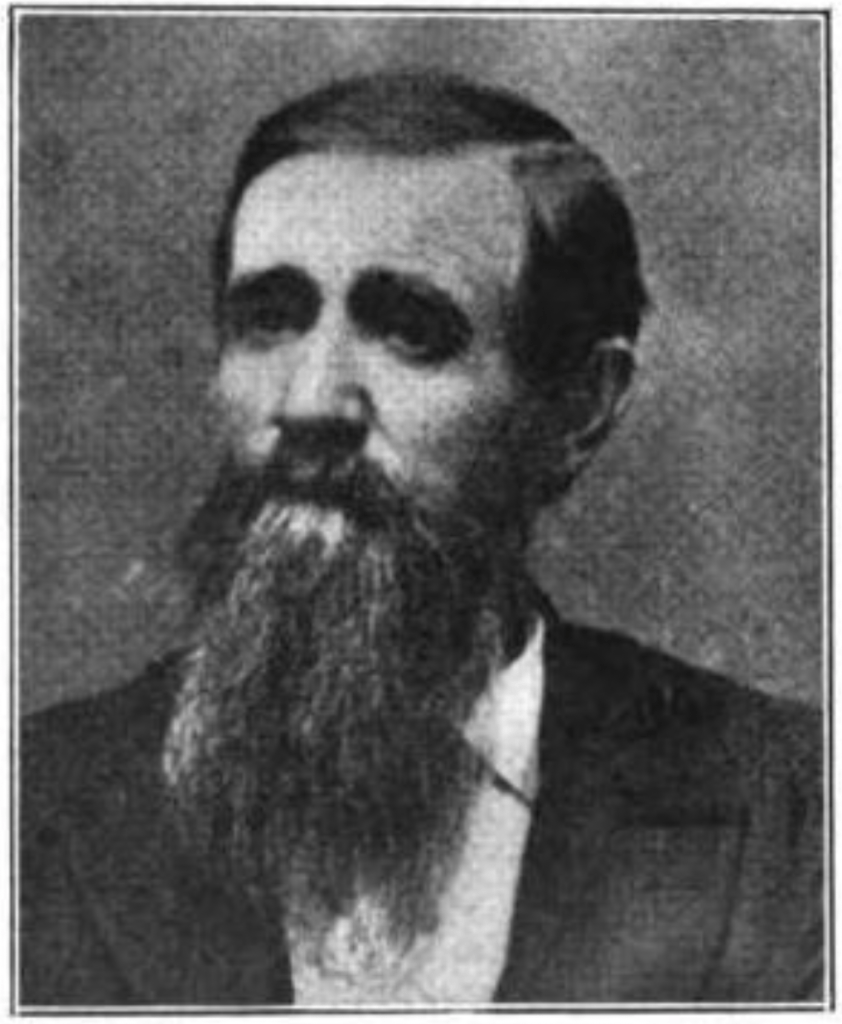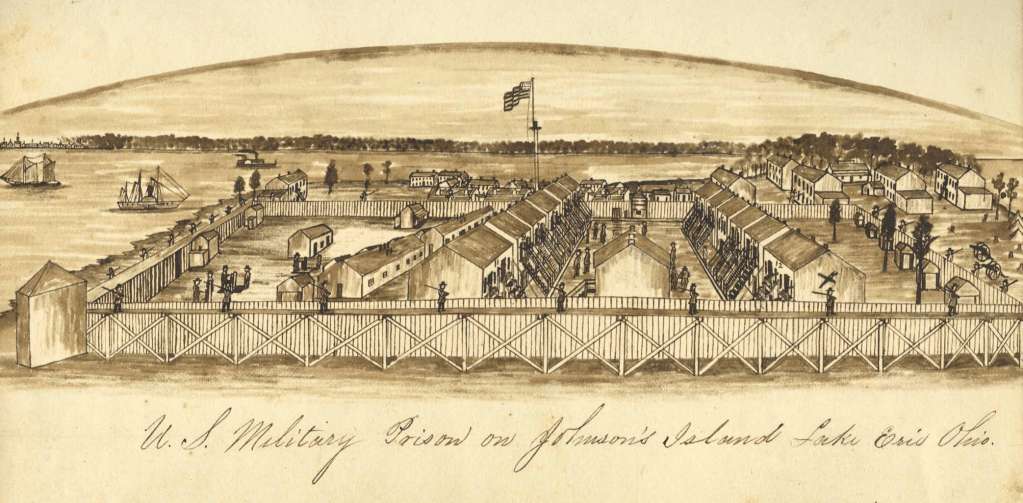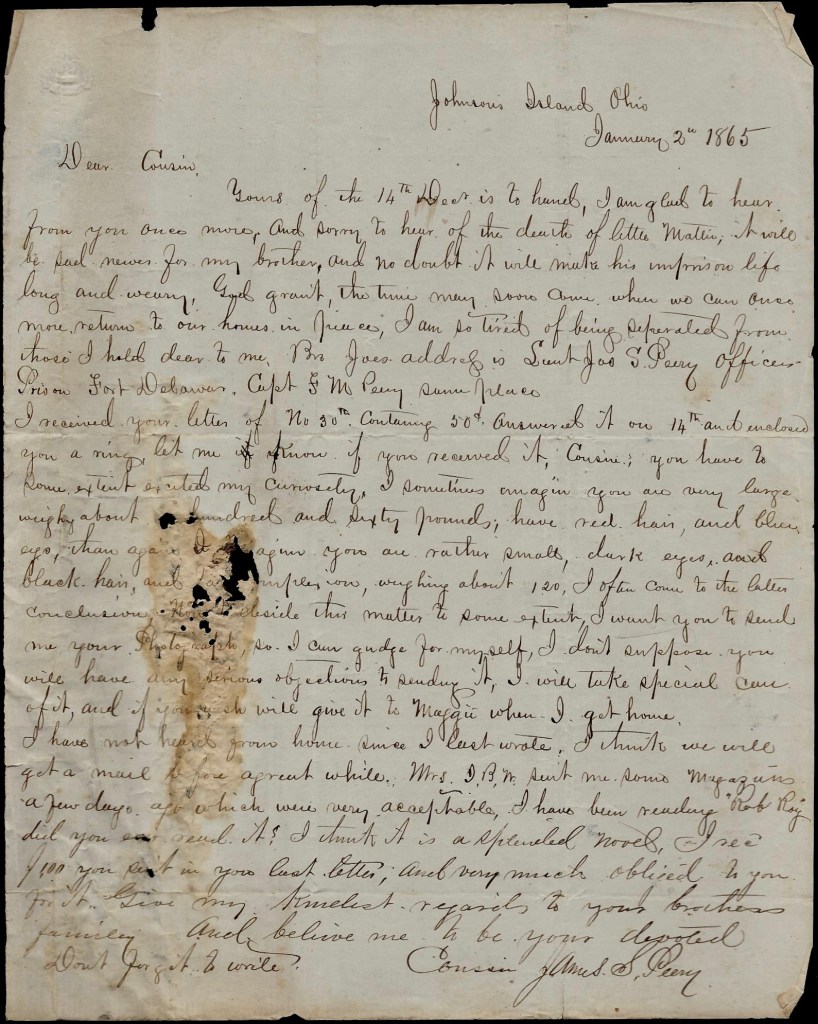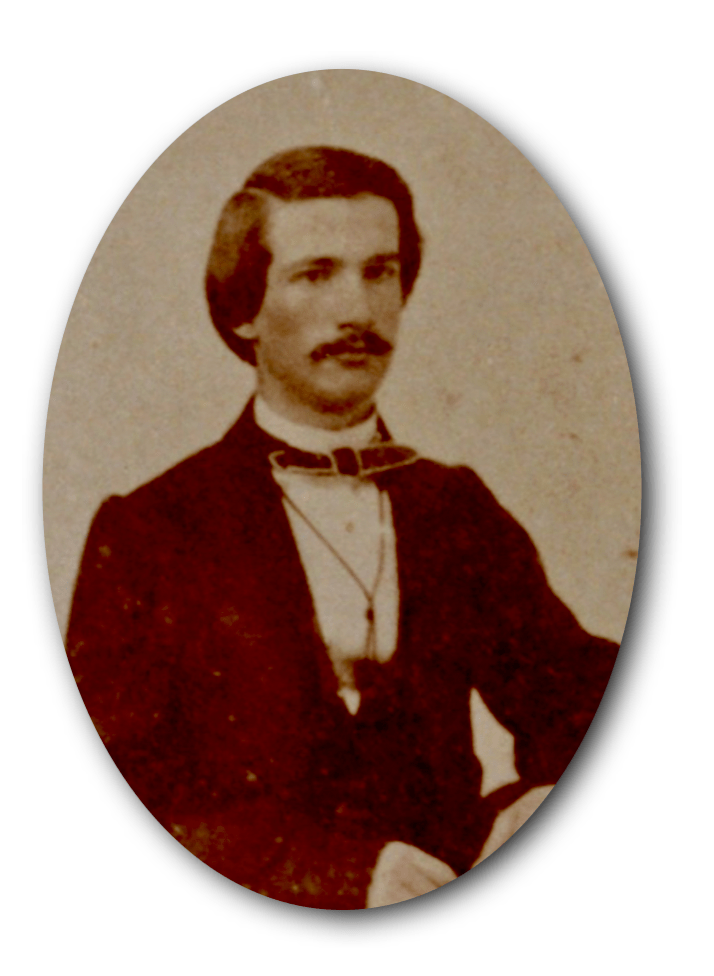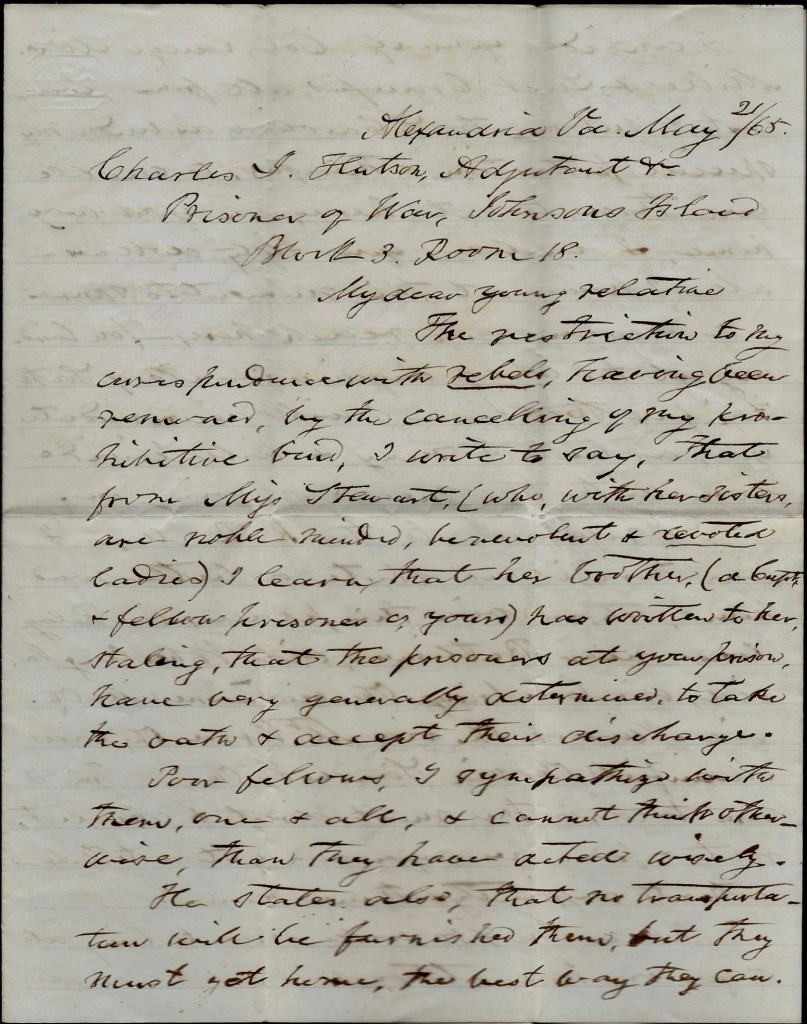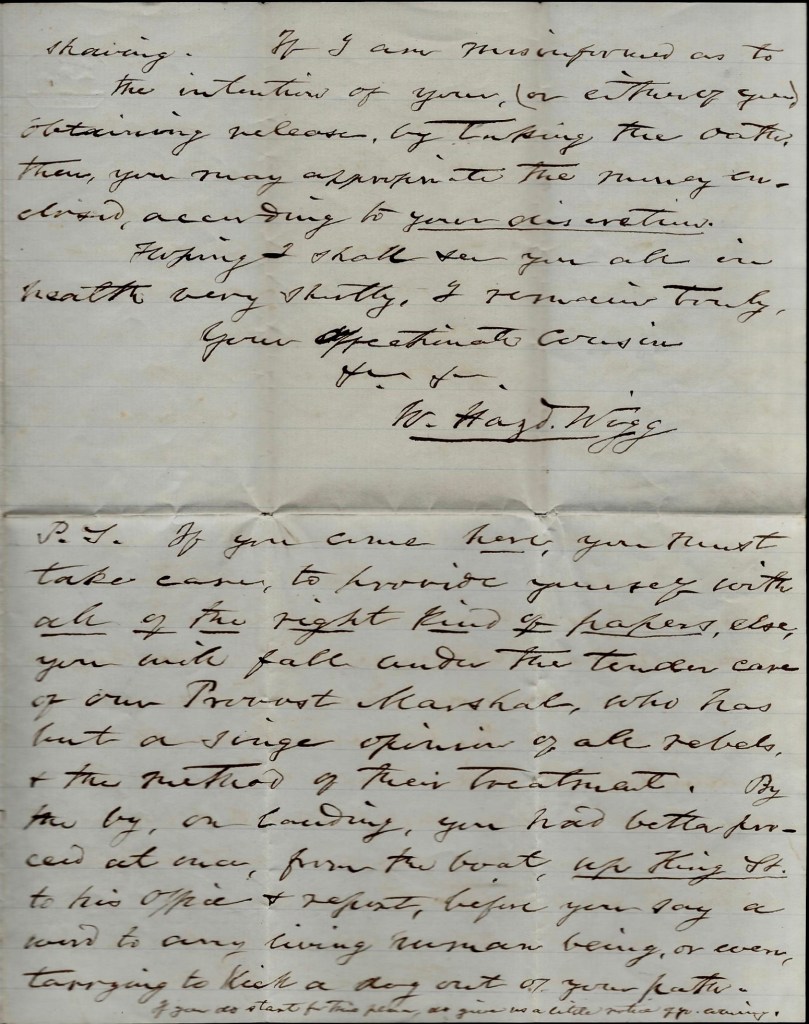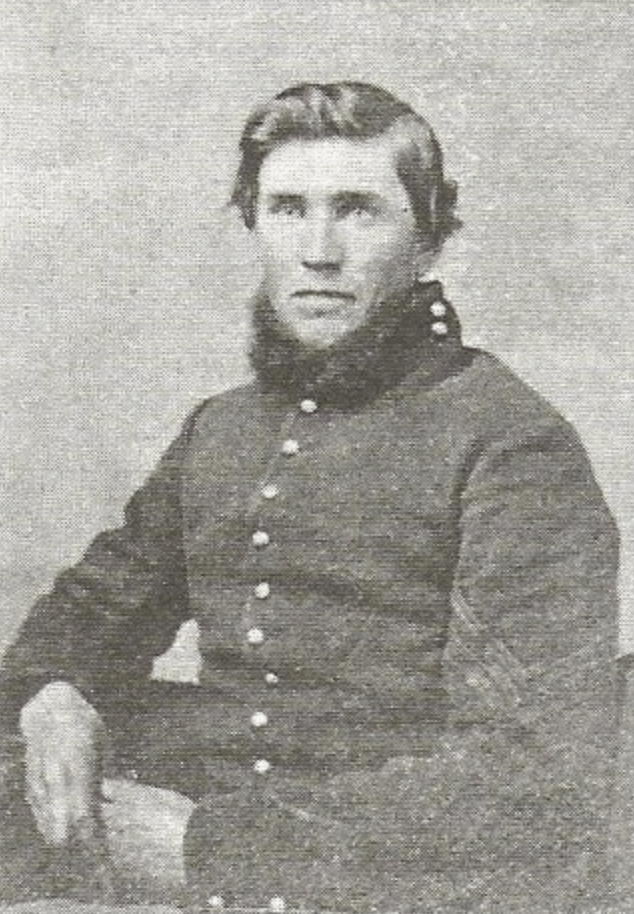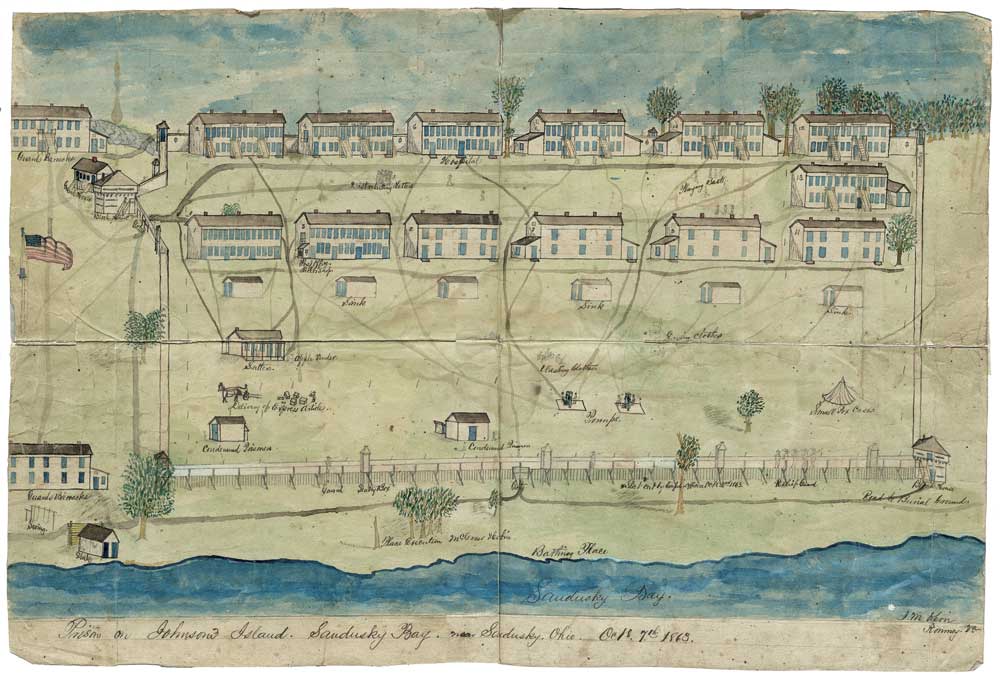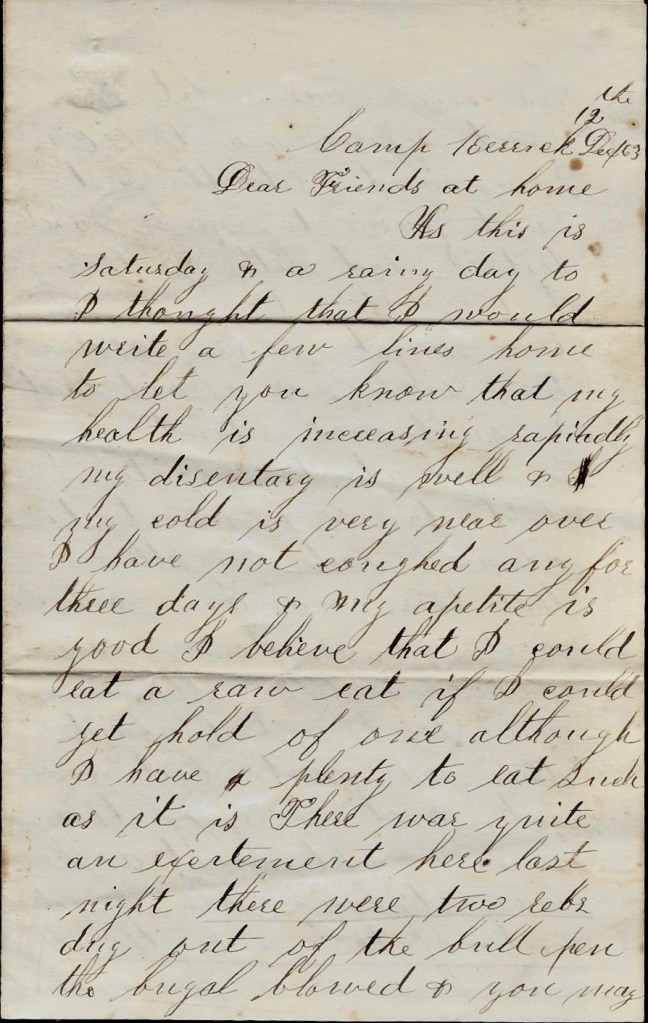The following letter was written by Hugh Lawson White (1839-1871), the son of Judge George M. White (1800-1884) and Isabella McNutt (1780-1842) of Knoxville, Tennessee. When the Civil War began, “like all the young men of Knoxville,” Hugh volunteered his services “in the defense of Southern rights and territory under the conviction that it was the demand of patriotism, right and duty.” He was elected by his comrades as a Lieutenant in Capt. W. C. Kain’s Light Artillery Company. In the fall of 1863, he was captured at Cumberland Gap and sent a prisoner to Johnson’s Island where he was held until after the surrender in 1865. While in prison, he contracted a disease which impaired him and no doubt prematurely ended his life in 1871. After the war he studied and practiced law for a time but his health failed him.
Transcription
Johnson’s Island, Ohio
October 9th 1864
My dear sister Bell,
Your letter was received sometime ago. I am surprised that so much time has elapsed without my having answered it. I hope you understand my situation and will not feel slighted if I do not answer as promptly as is my custom. When I write home, my letters are intended for the entire family, so a letter directed to you is an answer to Mag’s, Andrew’s and yours. The restrictions are such that I cannot write to each of you each week though I will gladly read a letter from each of you every week or even oftener. Mag’s letter of September 18th was read with great interest. It gave me some very good news. I am very glad to have the photographs. Think Andy’s the best thing I ever saw. Mag’s is not so good. All are better than Moodie’s and Amanda’s. Mother’s and yours are very good. I hope you will soon send me father’s. I prize these representations of my mother, sisters, and brothers very highly. I have ordered a photograph album and will take good care of the pictures. I am very sorry to know that you have so much trouble at night. Hope arrangements will soon be made for the protection of private rights and property. Jno. House received a letter from his sister Ellen at Eatonton, Ga., in which she says [brother] Moses [White] 1 is commanding there and well. R. M. McPherson lives there. Lt. Danner received a letter from his sister Gus, written in Augusta on the 14th of September, in which she said Miss Sue Wallace died at that place on the 10th of same month. I had a letter from Rufe Beardon who is at Ft. Delaware a few days ago. Charlie, Inslee and all friends are well. Jim King is there. Rufe desires to be remembered kindly to you and all friends. Boys at Camp Douglas are well. Knoxville boys here are well. About fifty sick and convalescent officers left here for exchange a few days ago. Hoping to hear from you soon & often. I am very affectionately your brother, — Hugh White
What has become of Jim Coffin!
1 Moses P. White (1829-1907) of Knoxville was the Colonel of the 37th Tennessee Infantry.
